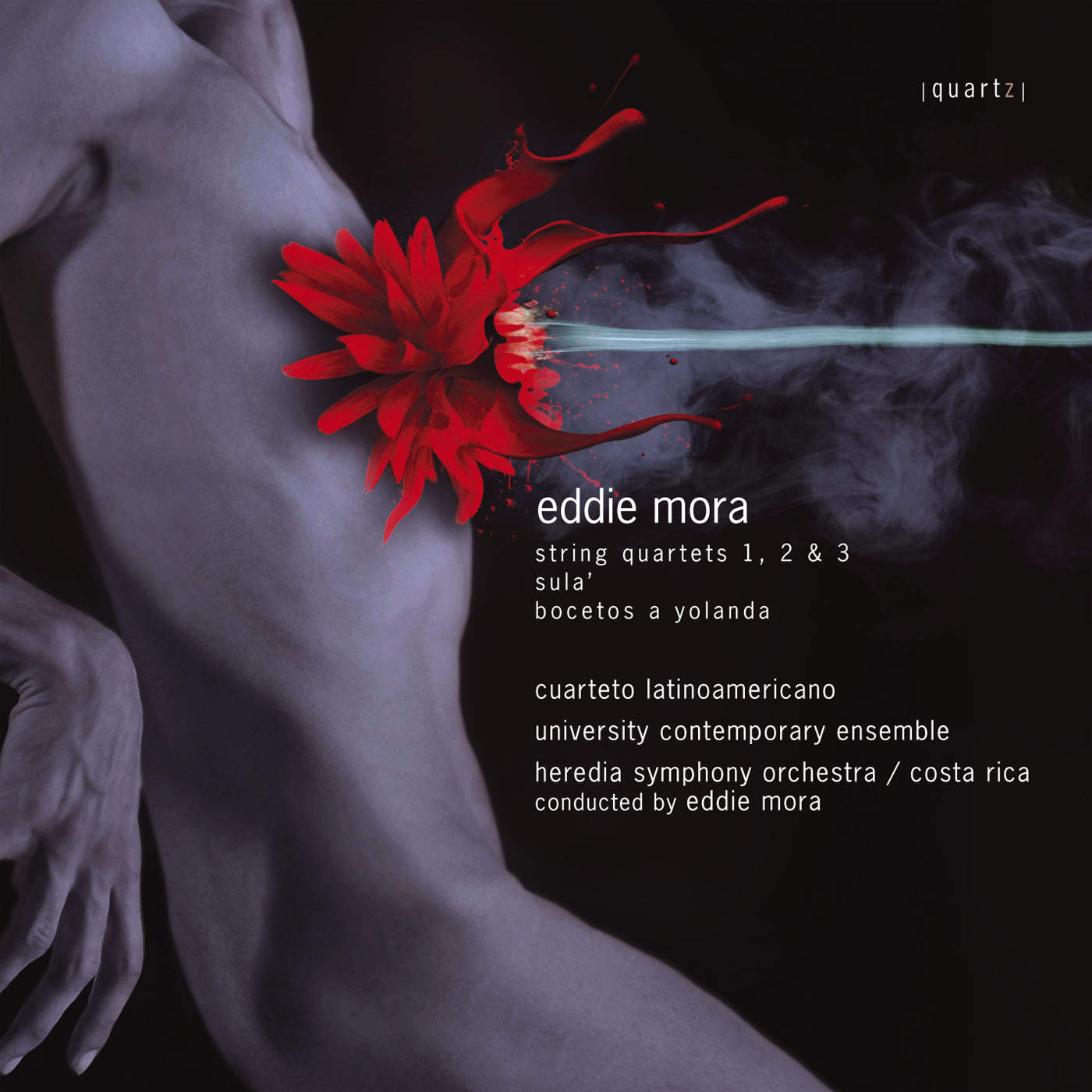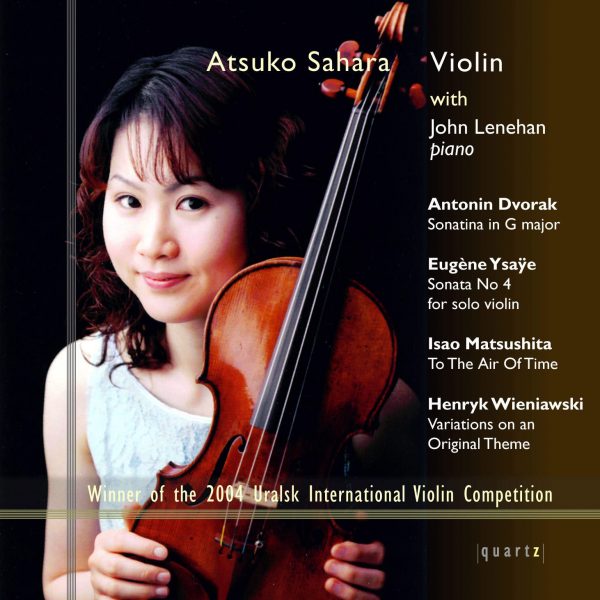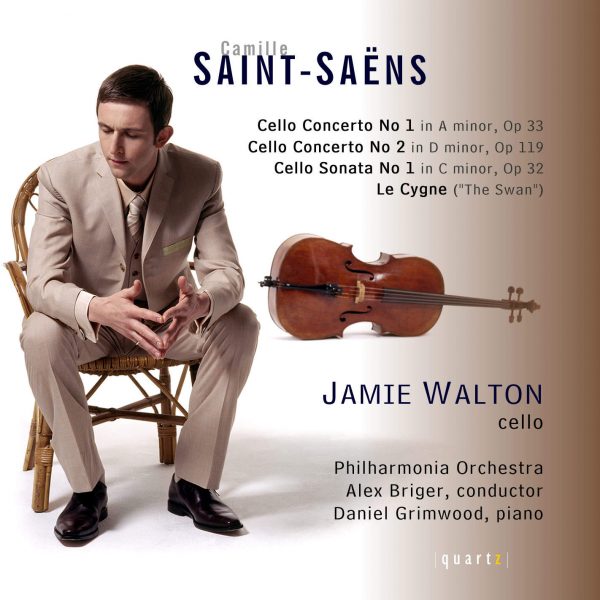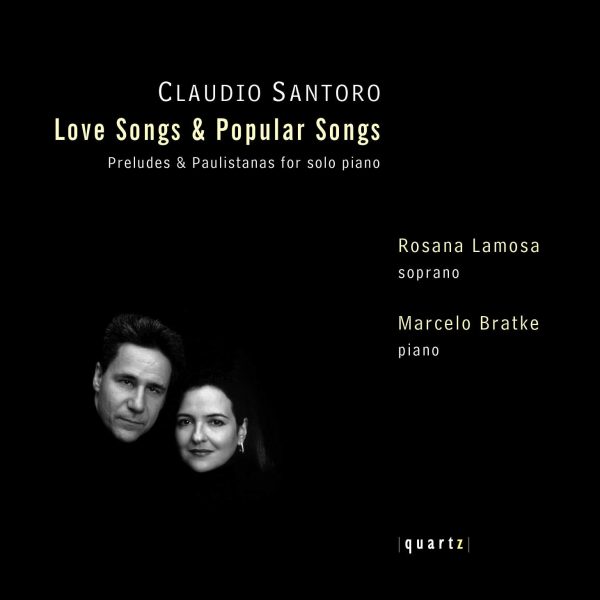Eddie Mora
Price range: £5.99 through £11.99
Eddie Mora
String Quartets 1 2 & 3
Sula
Bocetos a Yolanda
South American composer Eddie Mora has travelled across the Atlantic Ocean so as to enable him to make his musical endeavours. He undertook his first trip so as to understand European musical tradition. His stay at Moscow’s Tchaikovsky Conservatory and Musical School lasted a decade and that experience equipped him for the journey back to his homeland. The passage over the Atlantic brought about an encounter with his aesthetic stance, arriving in a sea of sonorous textures, interpreting the magic and beauty of Latin American culture with musical sound. The works recorded here tell the story of that return to a rich musical language.
About This Recording
“At times it is necessary to be at a distance, putting an ocean between oneself and things, in order to be able to see them close up.”Alejo Carpentier, Baroque Concert
Composer Eddie Mora literally had to make such a voyage back and forth across the Atlantic, an ocean which divides both cultures and continents. He undertook his first trip so as to come to know and understand European musical traditions. His stay at Moscow´s Tchaikovsky Conservatory and Musical School lasted a decade and that experience equipped him for the journey back to his homeland.
The admiration and delight Mora takes in his own continent have emerged little by little. The passage over the Atlantic brought about an encounter with his aesthetic stance, arriving in a sea of sonorous textures, interpreting the magic and beauty of Latin American culture with musical sounds.
The works recorded here tell the story of that return in rich musical language: Quartet I (2005), Quartet II (2008), Quartet III (2009), Sula’ (2010) and Sketches of Yolanda (2010).
In Quartet N.° 1, as might be expected, the composer’s music still reveals features that characterise Latin America, its musical imagery replete with syncopation and apparent allusion to the traditional calypso dance rhythms of Costa Rica’s Caribbean region. With Quartet N.° 2, a different outcome is achieved: carrying out the entire work by departing from a minimal musical material, specifically the initial melodic intonation, composed of a minor second. With this piece, Mora also constructs bridges across the ocean, since he references a Russian work by his favorite composer: Alfred Schnittke’s Fourth Concerto for Violín and Orchestra, conjoining in this quartet two worlds on opposite sides of the Atlantic.
Quartet N.° 3 is a continuation of the expressive mode of the second piece, but also develops a dramatic line based on theatrical genre and the stage. The piece’s theme is the downfall and final hour of Juan Rafael Mora Porras (1814-1860), a former Costa Rican president executed by firing squad. Using colourful musical resources, Mora interprets this period of history, outlining the events, feelings, ideological postitions, and beliefs of the epoch, which remain extant in today´s culture.
The last two works here deal with Latin American women living in circumstances very different from those of their European counterparts.
The title of one of these pieces, Sula’, is derived from the name of a supreme being in the Bribri indigenous people´s cosmovision. Sula’ is the goddess residing in hidden corner of a Costa Rican tropical forest, far from the civilized eye of the modern world. She is both the originator and giver of life, as well as the deity that snatches it away once the mission of a human being in this world has been carried out. The composer conveys the magical role that Sula’ plays by means of strategies ranging from vividly hued instrumentation to the fusion of timbres produced by diverse orchestral groups. Thus, Mora creates new, rapturous sound textures which paint exotic tropical wildlife scenes on his musical canvases, these contrasting with a sorrowful melody in the work´s central part of that pays homage to Omar Hernández, the great Mexican violist who all too early left this mortal realm.
The concluding recorded work here immerses the listener in the depths of the sombre private world of Teresa, a fictional personage created by Yolanda Oreamuno, renowned Costa Rican author during the 1940s. In a muted monologue, the novel´s dying protoganist wanders pensively through the maze of her home, an abode whose walls not only hold the memories of her life, but also bear witness and hold vigil as she lies on her death bed.
Only part of the Latin American composer´s unique story of musical return to his origins – the continent of magical realism – is told through these recordings. Here, Mora´s palette of sound depicts this remarkable “other world” with resonances that contrast with those of the old. The immediate universe of the composer – a part of the planet extraordinary for its culture, breadth of experience, and thought – enchants, refreshes, and invites one to reflect.
Text: Ekaterina ChatskiTranslation: Sonya Kozicki-Jones
Track Listing
-
Eddie Mora
- String Quartet No 1 (Retrato V) - I
- String Quartet No 1 (Retrato V) - II
- String Quartet No 2
- String Quartet No 3 (JRM)
- Sula
- Bocetos a Yolanda - I
- Bocetos a Yolanda - II
- Bocetos a Yolanda - III




